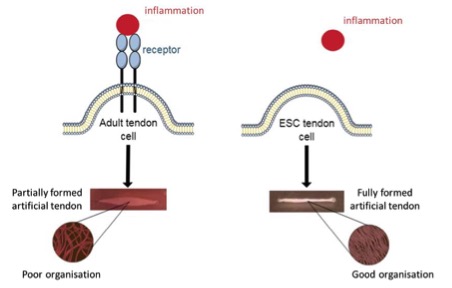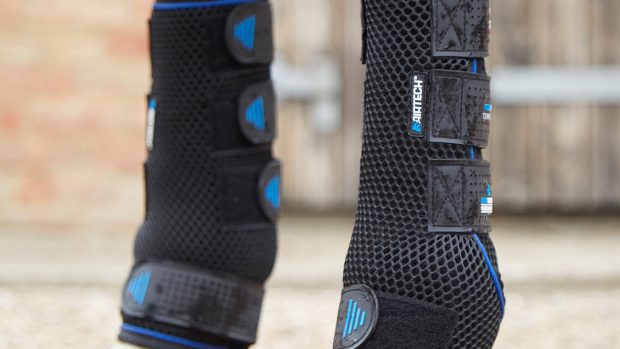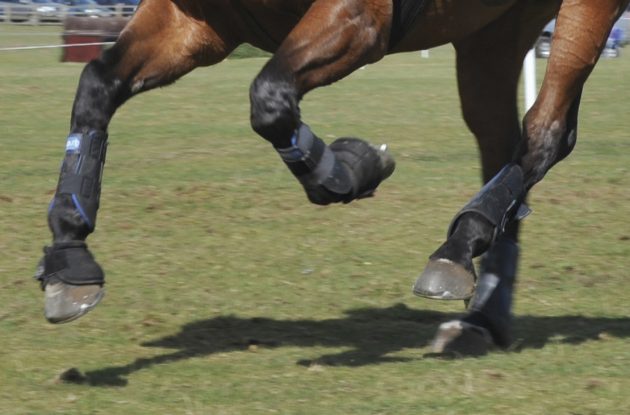A new form of stem cell treatment could give horses a better chance of recovering from tendon injuries, researchers have suggested.
Stem cell researchers at the Animal Health Trust (AHT) have found positive signs that stem cells originally sourced from embryos coped well in laboratory tests when exposed to inflammation. This is important as inflammation that occurs following an injury can prove damaging to adult tendon cells.
Tendon injuries are a common problem in horses and instead of regenerating healthy tendon tissue, they repair by forming scar tissue which pre-disposes the horse to a high risk of re-injury.
Stem cell treatment has been available for some years, but current treatments use the horse’s own stem cells.
This means they are not available for immediate use as they need to be extracted, cultured and separated from other cells, with the overall timeframe taking several weeks.
Current treatments also work by releasing factors to help tissue repair, rather than rebuilding the tissue itself.
However the embryonic stem cells grow forever in the lab so can be ready immediately and scientists also believe they work by helping to rebuild the tissue directly, reducing the amount of scar tissue laid down.

The recent work has been funded by the Horserace Betting Levy Board, Racing Foundation, Alice Noakes Memorial Charitable Trust and Beryl Evetts and Robert Lugg Animal Welfare Trust.
Using a laboratory model they found that adult tendon cells cannot produce “artificial” tendons efficiently when exposed to inflammation.
In contrast, they found that embryonic stem cells that were directed to turn into tendon cells behaved as normal when exposed to inflammation.
Dr Debbie Guest, head of stem cell research at the AHT said: “We were able to demonstrate that these tendon cells express different levels of receptors for inflammatory proteins on their surface.
“This means that these stem cells may provide a useful source of cells for clinical transplantation into the injured tendon as they are unlikely to suffer any negative effects from being placed into an inflamed environment.”
Article continues below…
You might also be interested in:

Even a severe tendon injury doesn’t have to spell the end: case study
The words “tendon injury” fill most horse owners with dread, but even with a poor initial prognosis, there can be

Does a tendon injury always spell the end?
Aimi Clark documents her horse’s extraordinary recovery from a tendon injury

Subscribe to Horse & Hound magazine today – and enjoy unlimited website access all year round
A spokesman for the AHT said the team believes this opens up the possibility of further studies to understand more about how embryonic stem cell-derived tendon cells protect themselves from inflammation, with a view to developing new treatments that could be used to protect adult tendon cells following injury.
“Protecting tendon cells from inflammation could help to improve the regeneration of healthy tendon tissue to reduce the risk of re-injury and allow more horses to remain in active work,” added the spokesman.
“Funding for a follow up study by the Animal Health Trust, in collaboration with the Royal Veterinary College, has been secured from the Horserace Betting Levy Board and the team are hopeful that new treatment options for this old problem may soon be developed.”
For all the latest news analysis, competition reports, interviews, features and much more, don’t miss Horse & Hound magazine, on sale every Thursday





